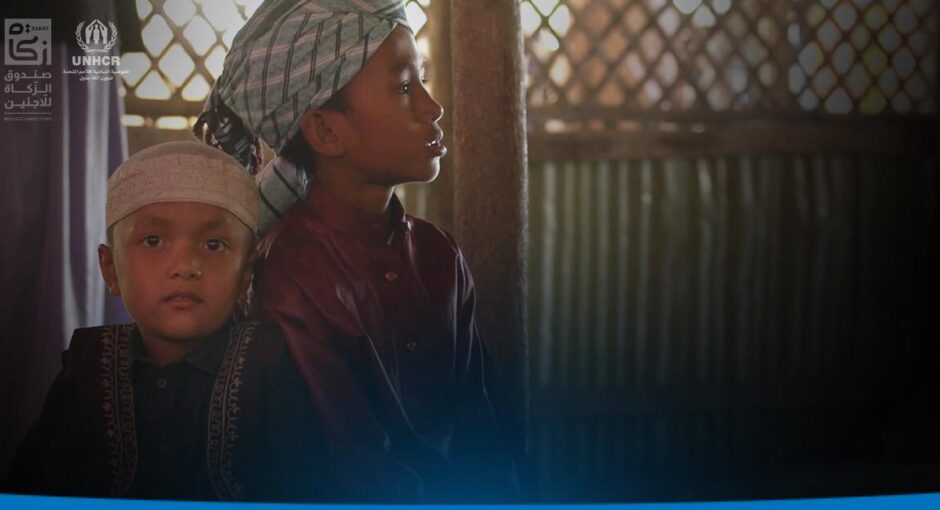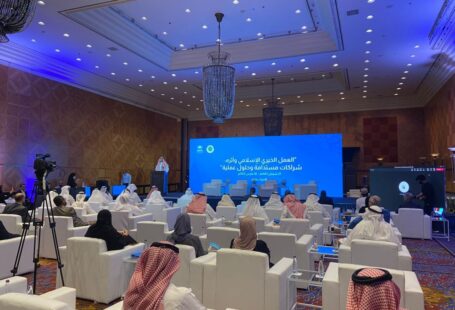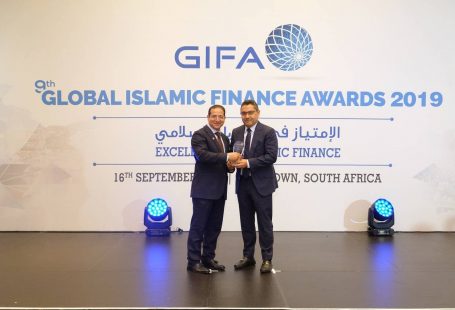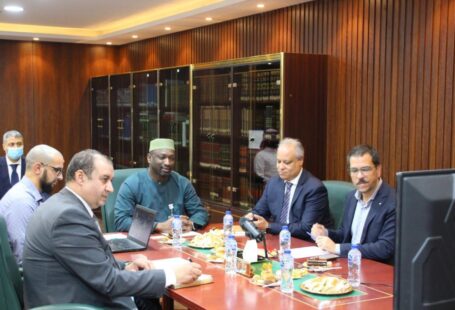In a bid to strengthen collaboration and governance in the area of Islamic social finance, the UN Refugee Agency, UNHCR and the Accounting and Auditing Organization for Islamic Financial Institutions (AAOIFI) signed today a three-year memorandum of understanding (MoU). This initiative marks the beginning of a long-term partnership between both parties, with the aim of further developing Islamic finance tools for the benefit of the world’s most vulnerable refugees and internally displaced persons (IDPs).
AAOIFI, leading the global standardization and harmonization of international Islamic finance practices and financial reporting, is collaborating with UNHCR to exchange areas of expertise, create Zakat governance standards for international humanitarian organizations and develop other areas of Islamic Philanthropy for UNHCR. This will include Waqf, Sadaqah, Sukuk and purification funds, through creating relevant avenues for Islamic banks to engage with UNHCR. Building awareness through the joint organization and hosting of seminars and forums on areas of mutual interest is also part of the collaboration.
“Collaboration and partnerships with financial institutions and Islamic finance infrastructure organisations such as AAOIFI is at the core of UNHCR’s Refugee Zakat Fund engagement strategy. No impact can be achieved otherwise in response to the global displacement crisis affecting over 70 million people today”, said Mr. Khaled Khalifa, UNHCR’s Senior Advisor on Islamic Finance and Regional Representative to the Gulf Cooperation Council Countries.
“We very much welcome the signing of this landmark MoU with AAOIFI, capitalizing on their extensive expertise in Islamic finance, especially in light of COVID-19 outbreak that is affecting refugees who live in densely populated camps or poor urban areas. This pandemic is an emergency on top of an emergency”, added Mr. Khalifa.
Commenting on its first MoU with a United Nations agency, AAOIFI’s Secretary General, Mr. Omar Mustafa Ansari said: “We are pleased to embark with UNHCR on this purposeful journey, which can tailor Islamic social finance tools for the benefit of the world’s refugees. We look forward to building a strategic partnership to engage Islamic financial institutions and other industry players in the global humanitarian response to support refugees”.
In 2019, and after a two-year pilot, UNHCR launched its Refugee Zakat Fund, a trusted, compliant and efficient distributor harnessing the power of Zakat to transform the lives of the most vulnerable refugees and IDPs, including in hard to reach areas. Last year alone, the Fund assisted more than 1 million beneficiaries in Jordan, Lebanon, Iraq, Egypt, Mauritania, Yemen, Bangladesh and Malaysia. This year, the Fund continues to capitalize on partnerships to double this impact, especially amid a global COVID-19 emergency.
FOR MORE INFORMATION PLEASE CONTACT:
Shadi Ghrawi, Islamic Philanthropy Officer, UNHCR
+971 (56) 665 3845
ghrawi@unhcr.org
Dr. Rizwan Malik, Senior Manager, Standards Implementation and Strategic Development, AAOIFI
+973 – 17244496
rmalik@aaoifi.com
About UNHCR
UNHCR, the UN Refugee Agency, leads international action to protect people forced to flee their homes because of conflict and persecution. We deliver life-saving assistance like shelter, food and water, help safeguard fundamental human rights, and develop solutions that ensure people have a safe place to call home where they can build a better future. We also work to ensure that stateless people are granted a nationality.
About AAOIFI
The Accounting and Auditing Organization for Islamic Financial Institutions (AAOIFI), established in 1991 is the leading international not-for-profit organization primarily responsible for development and issuance of standards for the global Islamic finance industry. It has a total of 113 standards and technical pronouncements in issue in the areas of Shari’ah, accounting, auditing, ethics, and governance for international Islamic finance.
AAOFI based in Bahrain is supported by over 200 institutional members, including central banks and regulatory authorities, financial institutions, accounting and auditing firms, and legal firms, from over 45 countries. Its standards and technical pronouncements are currently followed by leading Islamic financial institutions across the world and have introduced a progressive degree of harmonization of international Islamic finance practices.











Social Profiles